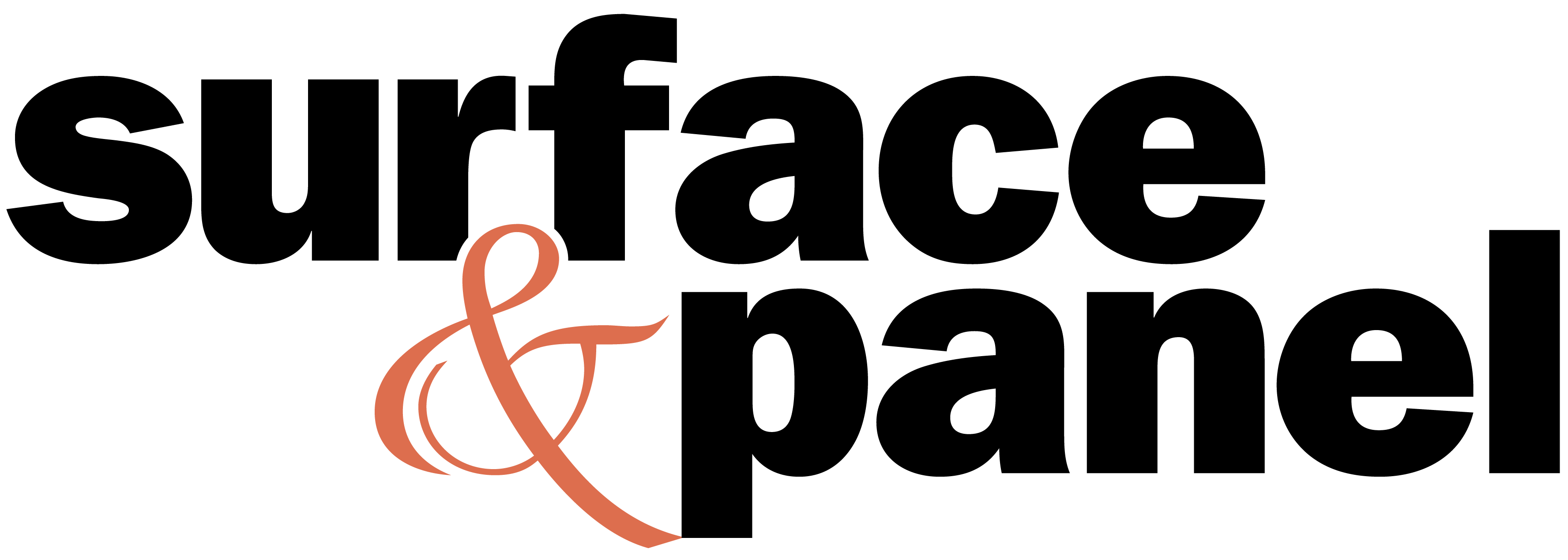Table of Contents
 The leaders at ARAUCO North America knew they had a critical need for a panel manufacturing plant in the Midwest. As it turned out, the Midwest needed ARAUCO, as well.
The leaders at ARAUCO North America knew they had a critical need for a panel manufacturing plant in the Midwest. As it turned out, the Midwest needed ARAUCO, as well.
The result? ARAUCO is constructing a $400 million, 750,000-square-foot mill in the north-central Michigan city of Grayling. Construction began in April 2017, and the plant will begin producing particleboard and thermally fused laminate in late 2018. It will be one of the largest board plants in the world.
The pursuit of a Midwest plant actually started about 10 years ago when brothers Kelly and Kevin Shotbolt were still helping run their family-owned Flakeboard Co., based in Ontario, Canada. It continued after ARAUCO, based in Chile, bought Flakeboard in 2012.

 The Midwest region and eastern Canada is by far and away the largest consuming market for composite panels, and it was devoid of a world-class facility,” said Kevin Shotbolt, vice president of sales and marketing for ARAUCO North America. “There is very little board production in this region. Composite panel supply is coming in from long distances, so the logistical challenges and costs are significant.
The Midwest region and eastern Canada is by far and away the largest consuming market for composite panels, and it was devoid of a world-class facility,” said Kevin Shotbolt, vice president of sales and marketing for ARAUCO North America. “There is very little board production in this region. Composite panel supply is coming in from long distances, so the logistical challenges and costs are significant.
“We’ve been evaluating this region for a long time, and given the opportunity, we knew we needed to be there,” Shotbolt said. “A significant number of our downstream customers in the various industry segments are there, whether it’s kitchen cabinets, RTA furniture, office furniture or store fixtures. It’s an incredible and dynamic marketplace.”
Coincidentally, the state of Michigan with its abundant forests and an economy still trying to recover from the recession and other setbacks was in the market for a major company willing to invest and take advantage of its resources. So it’s a particleboard partnership with huge benefits for the state, ARAUCO and the company’s many Midwest customers.


The Grayling plant is the second major greenfield panel-production project for the Shotbolts. The first plant was built by Flakeboard in Sault Ste. Marie, Ontario, in 1996 and included the world’s first 10-foot continuous board production line. Flakeboard, which started in 1960 with a pilot plant in St. Stephen, New Brunswick, was known for innovation in new equipment, largely because of a partnership with machinery manufacturer Bison. In 2006, Flakeboard bought Weyerhaeuser’s composite panel business and its six mills and became the largest composite panel producer in North America.
The Shotbolts feel fortunate to be involved in another major greenfield project that could help reshape a region, and they are grateful to be a part of ARAUCO.
“One of the biggest attributes of ARAUCO is their willingness to invest,” Kevin said. “They are continually looking at providing capital to their facilities. They consistently want to update and become more efficient, and the new facility in Grayling is a shining example of this.”
ARAUCO is a global producer of wood products, supplying pulp, lumber, plywood, composite panels and moulding. After expanding in Chile, Argentina and Brazil, it bought Flakeboard to continue its growth in North America. After the Flakeboard purchase, ARAUCO had manufacturing facilities in St. Stephen, New Brunswick, Sault Ste. Marie, Ontario; Albany, Oregon; Eugene Oregon; Bennettsville, South Carolina; Malvern, Arkansas and Moncure, North Carolina.
The Grayling plant was the logical next piece to the North American puzzle.
“We really wanted to have particleboard, MDF and melamine in every geographical region in North America,” Shotbolt said. “With Grayling, we won’t have to send carloads from the Southeast to Minnesota or from Oregon to Michigan like we have for 35 years. That’s a very inefficient long-term model. Our goal is to put modern particleboard and MDF assets in every region to efficiently and sustainably serve our growing customer base.”

The Grayling plant, which will employ about 200, will feature North America’s largest single continuous particleboard press and initially have an annual capacity of 800,000 cubic meters, along with full lamination capabilities. ARAUCO’S initial goal is to have the plant’s production be about two-thirds raw board for the open  market and one-third decorative TFL panels.
market and one-third decorative TFL panels.
The big press will come from Dieffenbacher and be 172 feet long and 10 feet wide. Wemhöner will supply the 5-by-20-foot TFL lines.
While the facility will be one of the world’s largest the day it opens, it is being built with growth in mind, Shotbolt said. Capacity is expected to steadily increase to 1 million cubic meters, and a third melamine line will be added to the initial two once the plant is running efficiently, he said.
“We have oversized most of the equipment,” Shotbolt said. “Over a couple of years as we streamline and gain efficiencies and economies of scale, we can get this plant up to a million cubic meters without any additional investment.”
As for wood to supply chips and fiber, all will come from “a fairly small concentric circle” around the mill, Shotbolt said.
“Michigan used to be a major region of supply to the lumber industry. A lot of that business was significantly reduced due to the most recent recession, so there is an abundance of raw material. The state of Michigan was actively looking to build that business back up again,” he said. “The Michigan DNR was actively looking for a  business like us to come into this area.”
business like us to come into this area.”
The wood for ARAUCO is not the same as that used for pulp or OSB, he added, so competition won’t be an issue. The mill will use a mix of hardwood and softwood, with the exact percentage determined after production begins.
The wood will be 85 to 90 percent chips, either chipped by ARAUCO at the mill or in the forest. Most important, it will be consistent.
“We can do precise measuring of our refining process, and we are not subjected to raw material variances, which we experience at other mills. This is going to be a very consistent material, and I think that consistency is going to be one of the mill’s major benefits,” Shotbolt said.
The benefits for ARAUCO’S Midwest customers to have a top-producing, state-of-the-art panel facility in the region will be many. “Our customers are going to love it,” Shotbolt said. “They are going to have a long-term sustainable supply of particleboard and melamine for decades to come.”
Because of Grayling’s proximity to those customers, ARAUCO will become more of a just-in-time supplier of materials, delivered by short-haul truckers.
“We will be able to provide a service model in all regions of North America that doesn’t exist from any company,” he said. “Our customers won’t require heavy inventories that can stress their working capital.”
Grayling also brings the prospect of downstream customers co-locating near the plant. ARAUCO has reached out to companies, and some have contacted ARAUCO, Shotbolt said. The mill will take up about 160 acres on the 650-acre site, so there is ample room.
 Some of those companies could come from outside North America. The new mill has created a buzz internationally among companies that are exporting to the U.S. and reaching a “critical mass” where locating in the States makes sense, Shotbolt said.
Some of those companies could come from outside North America. The new mill has created a buzz internationally among companies that are exporting to the U.S. and reaching a “critical mass” where locating in the States makes sense, Shotbolt said.
“Michigan is getting lots of attention because of the size of our plant, the flexibility and its central location,” he said.
While a benefit to many, the new mill and its high-volume production of raw boards and TFL is sure to affect the Midwest market.
“When any new capacity comes online, there is going to be a period of settling in. We’re going to have a similar impact to our own mills, let alone our competition,” Shotbolt said, noting that products now shipped from the Pacific Northwest and Southeast will be “pushed back” to those regions.
“Everybody probably is going to settle back into being closer to home where their plants are. That’s a model that has become synonymous within Europe. Panel producers aren’t shipping over vast areas as we are doing now in North America. They tend to ship within geographical regions, with short-haul trucking and just-in-time delivery.”
Shotbolt acknowledged that the particleboard market isn’t as robust as when ARAUCO first began planning Grayling. Shipments by North American companies have essentially been flat for a few years, even though consumption “is undoubtedly up.” Imports from South America, especially Brazil, have filled the gap, and that will be another factor in the shakeout once Grayling is operating.
ARAUCO and Shotbolt are unabashedly optimistic when it comes to the future of TFL. After Grayling opens, ARAUCO plans to introduce new designs and textures, including a double-sided synchronized TFL, along with textures that aren’t currently available in North America.
The U.S. TFL market remains behind those in Europe, Canada and South America, where TFL has been the material of choice for kitchen cabinets, furniture and fixtures for years, Shotbolt noted.
“The U.S. has a real opportunity to grow the TFL business,” he said. “I feel that with the new innovations that are now available in TFL with deep embossing and real wood designs, the trend will continue to be accepted here in North America.
 “I would be quite surprised if TFL does not become the standard decorative surface in the U.S. It’s a completely different product than what was available a decade ago.”
“I would be quite surprised if TFL does not become the standard decorative surface in the U.S. It’s a completely different product than what was available a decade ago.”
Through all of the changes that will come with Grayling, one thing Shotbolt doesn’t expect to change is ARAUCO’S distribution model. The company sells directly to its biggest customers—“large OEMs that have the size and requirements”—but it has always relied on distributors to reach the broader market.
“Our business was founded on distribution, so we’re big distributor fans,” Shotbolt said. “We have a significant product offering, and we need lots of distribution support. It’s a nice balance.”
As for the possibility of vertical integration, such as cutting to size, edgebanding and additional processing, Shotbolt said ARAUCO won’t dismiss any opportunity, but it will proceed cautiously to ensure it doesn’t disrupt customers or step on toes.
“We would likely prefer to align with a customer and investigate a co-location strategy, rather than compete with them. That would be a preferable model for us,” he said.
No matter how you cut it however, Grayling is a major investment in composite panel production by one of the industry’s leaders, and that’s good news on many fronts.
“The situation in Grayling is the ultimate commitment to an industry—putting in one of the largest facilities in the world and spending upwards of $400 million,” Shotbolt said. “It’s a major commitment, not only to the industry at large but to our customer base and their growth opportunities.”










